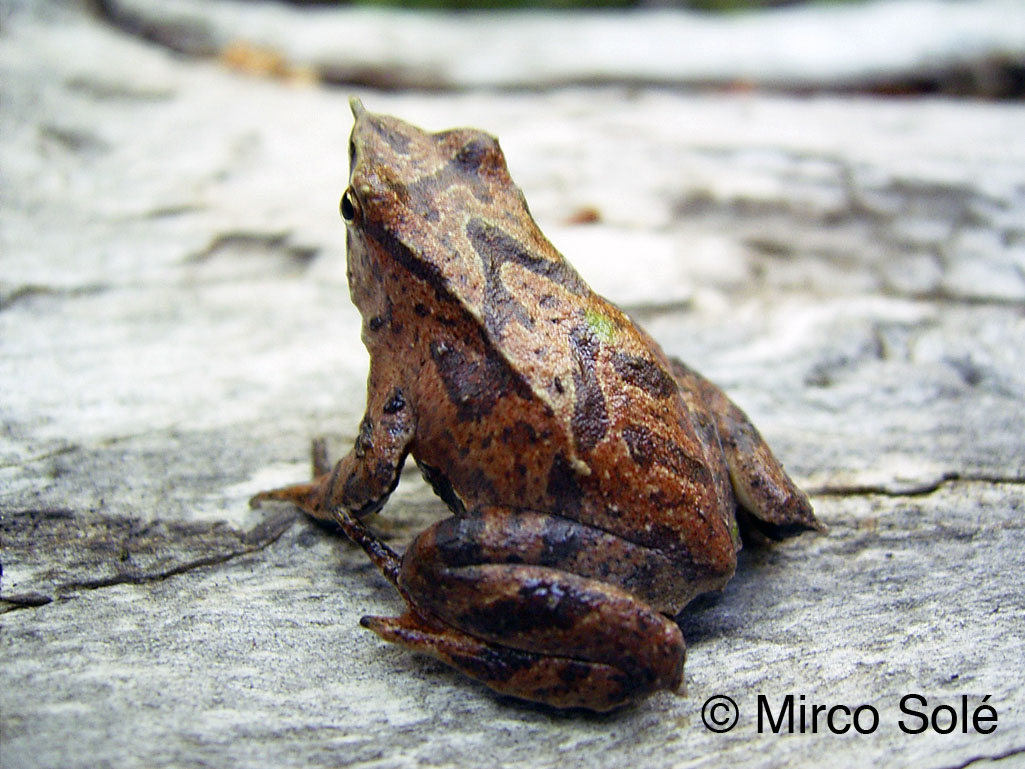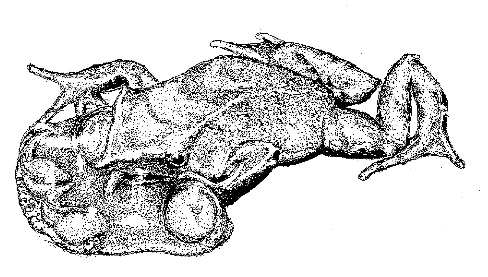Parental Care In Darwin's Frog (Rhinoderma darwinii)
Biology 342 Fall 07
Kristy Gonyer
Mechanism
Effects of Hormones on Amphibian Reproduction
Possible Hormone Effects in R. darwinii

Rhinoderma darwinii
Used with Permission by Micro Sole
Effects of Hormones on Amphibian Reproduction
Hormones such as androgen, corticosterone, and gonodotropin and peptides such as AVT are important in the reproductive behaviors of amphibians (Wilczynski et al., 2005). While no studies have been done specifically with R. darwinii and it is likely that the particular hormones differ somewhat between species, it has been shown that reduced levels in androgen are associated with male parental care in amphinians (Moore, 1983). The parental care behavior itself also seems to reinforce the lower levels of androgen, which enhances parental care, and allows males to minimize their reproductive costs (Houck, 1998).
The lower levels of androgen also correspond to a decrease in mating activity and cannibalism (Townsend & Moger, 1987). Sensitivity of olfactory signals seems to be affected by gonodotropin (Ogurtsov, 2004).
.
Possible Hormone Effects in R. darwinii
Hormones such as the androgens and gonodotropin may control at least parts of R. darwinii’s brooding behavior. Increased olfactory sensitivity due to hormones could be influential in a male’s fidelity to unhatched eggs. Reduced androgen levels could also be a cannibalism inhibiting mechanism when the young frogs are released from the vocal sac (Busse, 2003).
Other behaviors such as a the swallowing response to muscular contractions in nearly hatched larva are thought to be stereotyped and are most likely due to a neural mechanism.